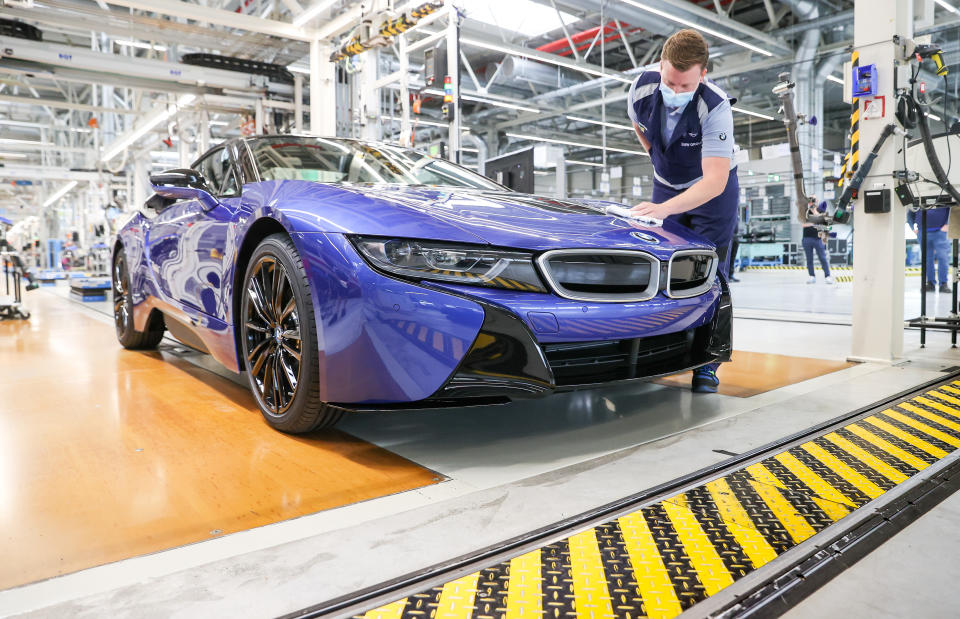Coronavirus sales slump drives BMW to a second quarter loss

Premium German carmaker BMW (BMW.DE) today reported a quarterly net loss of €212m (£191m, $250m) in the second quarter, compared to a profit of €1.45bn the same time a year ago as the coronavirus crisis forced car plants and dealerships to shut and dented sales.
“Our swift responsiveness and consistent management strategy enabled us to limit the impact of the corona pandemic on the BMW Group during the first half of the year,” said BMW chief executive Oliver Zipse in a statement. “We are now looking ahead to the second six-month period with cautious optimism and continue to target an EBIT margin between 0 and 3% for the Automotive segment in 2020.”
Before interest and taxes, the Munich-based carmaker posted a €666m loss in the second quarter. It said today it expected group pretax profit this year to be “significantly lower than 2019.”
In the first six months of the year, new registrations were down by 26% for BMW, with sales in the UK seeing the biggest drop of 49%.
BMW announced last month that its sales for the second quarter were down 25% compared to the same period last year, as plant closures and dealership lockdowns brought the car sector to a standstill. A rebound of around 17% in the important Chinese market helped counteract the overall sales slide.
READ MORE: Coronavirus: BMW sales plunge nearly 25% in second quarter
Sales at the core brand fell by more than 23% and by over 38% at Mini. However, Rolls-Royce fared worst of all, with second quarter sales dropping by almost 47%.
BMW said, however, that demand for its battery-electric and hybrid vehicles had outperformed the market trend last quarter.
Clean-energy cars make up less than 7% of the entire group sales, but the carmaker announced recently that it was developing fully-electric versions of its 5 Series, 7 Series, and the X1 SUV, as part of the push to have 25 electric models in its lineup by 2023.
BMW in June announced it had signed a €2bn contract with Swedish battery-cell manufacturer Northvolt, making it the third battery supplier the company has signed up, after China’s CATL and Samsung.

